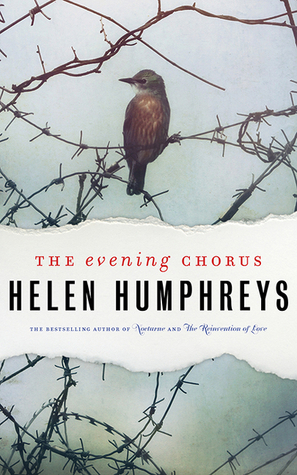 War is not just felt on the battlefield. In war literature and movies, the focus is often on bloody and horrible battles, or the ill-fated escape attempts of prisoners of war, or major events like the Blitz of London.
War is not just felt on the battlefield. In war literature and movies, the focus is often on bloody and horrible battles, or the ill-fated escape attempts of prisoners of war, or major events like the Blitz of London.
While these themes are present in The Evening Chorus, they are on the periphery. The central plot of Helen Humphrey’s new novel set during the Second World War is on the everyday turmoil caused by war: broken relationships and disrupted lives.
James, a POW in a German camp, is not looking to escape, although some of his fellow POWs are. He seeks something to occupy his attention while he waits out the war – something to help guard against the monotony. He turns his attention to a pair of redstarts who build a nest near the camp, studying them meticulously. Meanwhile, at home in a rural cottage, his new bride Rose is left feeling as though she never knew her husband at all, and begins an affair with another man. James’ sister, Enid, comes to stay with Rose after she loses her home in the Blitz and the two begin an unlikely friendship.
All three experience the grief of war, and yet their tragedies are not presented in a dramatic way. The novel seems almost peaceful at times, until Humphreys masterfully reminds the reader of the wartime setting with an unexpected moment of violence or tragedy. Just when the novel seems to be progressing as you expect, it shifts. Later, the novel moves forward in time to the 1950s and Humphreys subtly demonstrates the unpredictability of life – at any time.
Yet through all the twists and turns in the lives of the characters, the one thing that remains constant is the natural world. For James, it’s the redstarts who take flight in a way that he cannot. For Rose, it’s her relationship with her dogs. For Enid, it’s observing and studying the heath and its vegetation. The characters all receive solace from focusing on something outside themselves.
I always enjoy World War II novels, and Humphreys provides a unique take on this particular period in history. The writing is lyrical and Humphreys uses allusions to nature and birds to create beautiful imagery.
The Evening Chorus is a quiet wartime novel. Ultimately, the message is that life can change in an instant, and it may turn out very differently than we thought. The real task is having the ability to move on, whether in war or in peace.
Have you read The Evening Chorus? What did you think about it? How did it compare to other World War II novels?
I have been wondering about this one. I read Coventry last year and liked it, and have been meaning to read another of her books. Is this the first book you’ve read by Humphreys?
I also enjoy war novels, and books about ordinary life. This sounds like a mixture of both.
LikeLike
Yes, this is the first book I’ve read by her, but I’ve heard of Coventry, and I’ve also wanted to read Nocturne for a little while. Hopefully I’ll get to them eventually!
This is an interesting mix of wartime and ordinary life, and jump forward in time adds an interesting element too, as you get to read about life after the war. If you do pick it up, I hope you enjoy it!
LikeLiked by 2 people